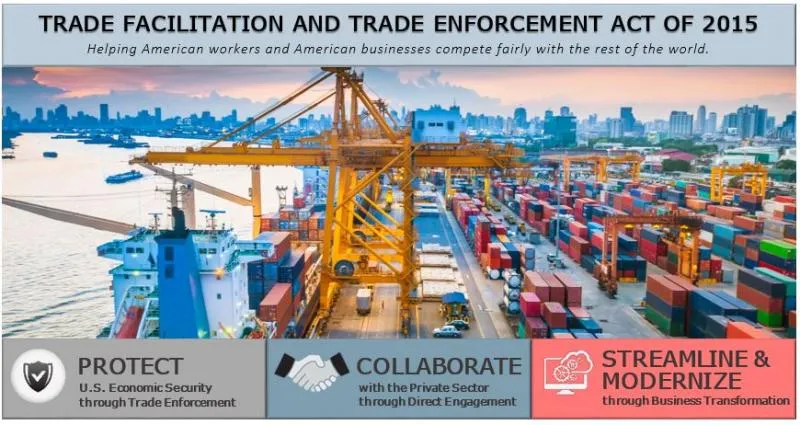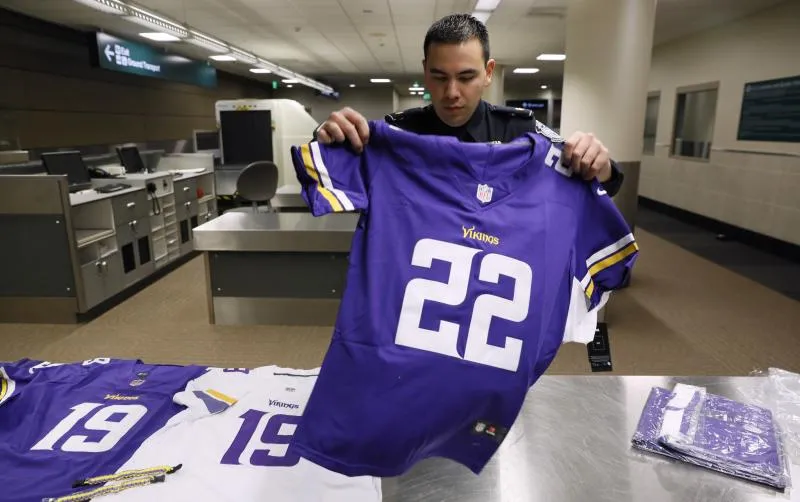Author: Acting Commissioner Kevin McAleenan

Saturday marked the second anniversary of the signing of landmark trade legislation – the Trade Facilitation and Trade Enforcement Act (TFTEA). For CBP, the new law required reorganization: new programs, offices, regulations, trainings, and engagements. With more than 100 new mandates and requirements, TFTEA has been a game-changer for industry and consumers alike. Implementing this law has been a top priority for CBP since the ink was barely dry, and we are on track for more great progress in 2018.
One key provision of TFTEA is the Enforce and Protect Act (EAPA), which gives us more tools to investigate alleged evasion of antidumping and countervailing duties. These import duties ensure that U.S. manufacturers who produce equivalent items can compete fairly. Since last August, when EAPA became effective, CBP has initiated 16 investigations and performed 10 foreign on-site verifications.
TFTEA also gives CBP additional authorities to safeguard human rights by strengthening the prohibition of U.S. imports made by forced labor, including child labor. To date, CBP has detained 57 shipments valued at $6.3 million. This includes 15 shipments of seafood processed in China by North Korean workers – products that were destined to U.S. supermarkets and restaurants. In November, for example, CBP seized more than 10,000 cartons (valued at more than $200,000) of frozen squid manufactured with North Korean labor.
TFTEA helps us keep counterfeit merchandise out of the U.S. supply chain by protecting intellectual property rights (IPR). In fiscal year 2017, CBP seized more counterfeit and pirated goods than ever before. Seizures of shipments that violate IPR increased by 8 percent in FY 2017 over the previous fiscal year, and if those seized items had been genuine, the total estimated manufacturer’s suggested retail price would have been more than $1.2 billion.
 TFTEA also enhanced IPR enforcement by permanently establishing and staffing the Intellectual Property Rights Coordination Center (IPRCC), led jointly by CBP and U.S. Immigration and Customs Enforcement (ICE). Most recently, the IPRCC spearheaded Operation Team Player, targeting the illegal importation of counterfeit Super Bowl sports apparel and merchandise. As part of this year-long operation, CBP uncovered more than 170,000 counterfeit sports-related items worth an estimated $15.7 million, and joint investigative efforts with the FBI and Minneapolis police led to 65 arrests with 24 convictions.
TFTEA also enhanced IPR enforcement by permanently establishing and staffing the Intellectual Property Rights Coordination Center (IPRCC), led jointly by CBP and U.S. Immigration and Customs Enforcement (ICE). Most recently, the IPRCC spearheaded Operation Team Player, targeting the illegal importation of counterfeit Super Bowl sports apparel and merchandise. As part of this year-long operation, CBP uncovered more than 170,000 counterfeit sports-related items worth an estimated $15.7 million, and joint investigative efforts with the FBI and Minneapolis police led to 65 arrests with 24 convictions.
The Center also facilitated INTERPOL’s Operation Pangea, an international effort to shut down online pharmacy websites selling counterfeit medicine and illicit medical devices. This operation resulted in 3,584 websites taken offline, 400 arrests worldwide, and the seizure of more than $51 million worth of potentially dangerous medicines.
Looking ahead, by the end of this fiscal year we expect to incorporate all of the new TFTEA mandates into CBP’s Office of Trade’s regular operations. Our Centers of Excellence and Expertise – also formalized under TFTEA – continue to make our trade facilitation and trade enforcements more efficient and effective. Thanks to TFTEA, CBP is more empowered than ever before to put the health and safety of the American people and the vitality of the U.S. economy first.

